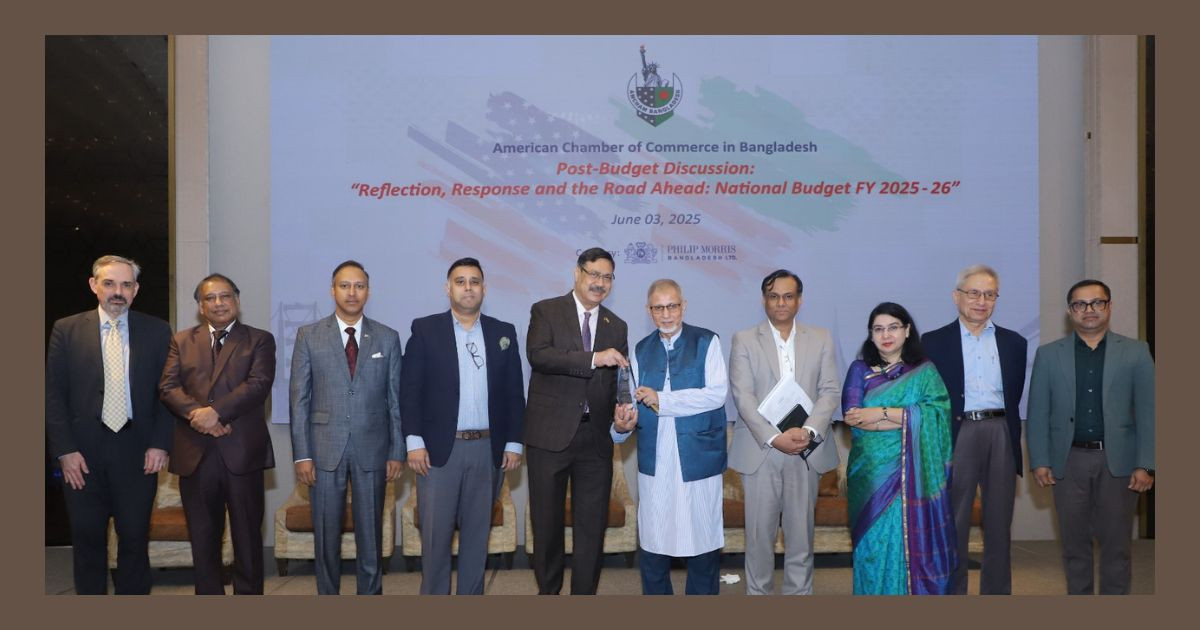Staff Correspondent
Published:2025-06-04 03:20:45 BdST
Budget falls short on investment incentives: Experts
Experts observed that the proposed national budget for the fiscal year 2025–26 is not sufficiently investment-friendly, as increased tax burdens on corporations and individuals may dampen the overall investment climate.
They shared their views at a post-budget panel discussion titled “Reflection, Response, and the Road Ahead: National Budget for FY2025–26” organised by the American Chamber of Commerce in Bangladesh (AmCham) at the Sheraton Hotel in Banani, Dhaka.
Presenting the keynote paper, Dr M Masrur Reaz, chairman of Policy Exchange Bangladesh, said the budget contains a number of isolated measures but lacks a cohesive strategy and comprehensive reform agenda to stimulate trade and investment.
“The budget misses a clear roadmap for growth and reforms, while inflation targets seem unrealistic,” he said, also noting stagnant allocations in health and education, and limited job creation, especially for rural women.
Dr Reaz highlighted challenges facing the readymade garment (RMG) industry, VAT policy inconsistencies, insufficient energy sector response, and limited focus on startups and entrepreneurship.
He recommended urgent reforms in the energy sector and a dedicated fund for startups and innovation.
Speaking as the chief guest, Special Assistant to the Chief Adviser Dr Anisuzzaman Chowdhury acknowledged that the interim government tried to present a better budget amid multiple challenges.
He cited poor inter-ministerial coordination as a major obstacle to systemic change, noting, “As a result, we often don’t see the intended outcomes.”
Besides, corruption continues to be a persistent challenge hindering the budget’s effective implementation, he said.
While the proposed budget sets ambitious goals, corruption and inefficiency in public spending remain major obstacles, the special assistant said. “The problem is not allocation, but how the money is spent.”
AmCham President Syed Ershad Ahmed said, “While the proposed budget includes some positive steps, it lacks adequate measures to attract more investment into the country.”
He added that the budget appears “highly ambitious” and that implementation may prove difficult amid prevailing economic and political uncertainties.
Dr Fahmida criticised the budget’s lack of focus on education, healthcare, human capital development, and issues relevant to Bangladesh’s graduation from Least Developed Country (LDC) status.
In contrast, NBR official Sadat defended the tax policies, saying they were designed to be investment-friendly.
“We’ve extended tax exemptions in export processing zones and other economic zones until 2030–2032. The proposed tax policies are aimed at encouraging investment,” he said.
Unauthorized use or reproduction of The Finance Today content for commercial purposes is strictly prohibited.


